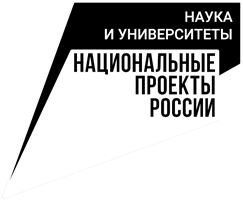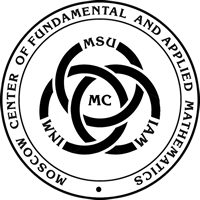Organizing Committee
- Huijun Fan (SMS PKU)
symplectic geometry and mathematical physics, geometric analysis - Sergey Gorchinskiy (MI RAS)
algebra and geometry: algebraic geometry, K-theory - Hailiang Li (SMS CNU)
fluid mechanics, partial differential equations, analysis - Jinsong Liu (AMSS)
algebraic geometry: singularity theory - Yi Liu (BICMR)
Topology of 3-manifolds, hyperbolic geometry - Denis Osipov (MI RAS)
algebraic geometry, number theory, integrable system - Ye Tian (UCAS, AMSS)
Number Theory, Arithmetic Geometry, Iwasawa Theory - Alexey Tuzhilin (MSU)
geometry: Riemannian and metric geometry - Yue Yang (CE PKU)
computation mathematics and mechanics - Ping Zhang (AMSS)
P. D. E.: fluid equation and semi-classical analysis - Alexander Zheglov (MSU)
geometry: algebraic geometry, integrable system
PROGRAM
11:00 (GMT+3)
| Shuang Miao Wuhan University |
|
|
Bio: Shuang Miao obtained his PhD at the Academy of Mathematics and Systems Sciences, Chinese Academy of Sciences. He is now a professor at Wuhan University. His research focuses on mathematical theory of nonlinear hyperbolic PDEs. |
|
On mathematical analysis of hard phase fluid with free boundary in general relativity.
The hard phase model is an idealized model for a relativistic fluid where the sound speed approaches the speed of light. In this talk I will first review some results on the well-posedness for the free boundary problem of this model, then I will present our recent work on dynamical stability and instability for a family of steady states to this problem.
12:00 (GMT+3)
| Andrei Bogatytrev INM RAS, MSU, MCFAM |
|
|
Bio: Professor Andrei Bogatyrev is a leading scientific researcher at the Marchuk Institute for Numerical Mathematics of Russian Academy of Sciences in Moscow and he is also a Professor at the Lomonosov Moscow State Universuty. He graudated from the Moscow Institute of Physics and Technology in 1994 and obtained PhD in in numerical mathematics in 1996. He obtained the Doctor of Physics-Mathematics Sciences (Russian analogue of habilitation) in 2003. In 2009 he was awarded the Kovalevskaya Prize from the Russian Academy of Sciences. In 2016 he was elected as the Professor of the Russian Academy of Sciences (honorary title). His research interests are in complex analysis and geometry (including Riemann surfaces and moduli), mathematical physics, functional analysis and function theory, ordinary differential equations, numerical analysis, approximation theory and optimization. |
|
Element orders and the structure of a finite group.
The Pell–Abel (PA) functional equation \(P^2(x)-D(x)Q^2(x)=1\) is the reincarnation of the famous Diophantine equation in the world of polynomials, which was considered by N.H. Abel in 1826. The equation arises in various math environments: reduction of Abelian integrals, elliptic billiards, the spectral problem for infinite Jacobi matrices, approximation theory, etc. If the PA equation has a nontrivial solution, then there are infinitely many of them, and all of them are expressed via a primitive solution \(P(x)\) which has a minimal complexity. Using graphical techniques, we find the number of connected components in the space of PA equations with the coefficient \(D(x)\) of a given degree and having a primitive solution \(P(x)\) of another given degree. Some related problems will be discussed also. Joint work with Quentin Gendron (UNAM Institute of Mathematics).
The meeting will be held in the form of a webinar on the Voov platform.
1) Download VOOV from here https://voovmeeting.com/mobile/downloadindex.html
2) Install it and register in it naturally (registration by e-mail).
3) However, if you have some difficulties, please, consult to https://zhuanlan.zhihu.com/p/589899174?utm_id=0
To Join Tencent Meeting:https://meeting.tencent.com/dm/hqYEj68Ft9hH
Meeting ID:638-406-013
Password:202403

